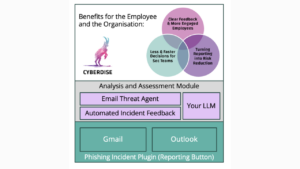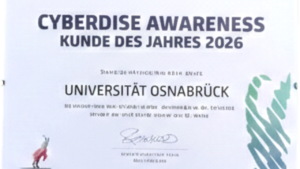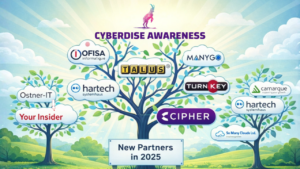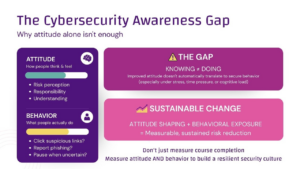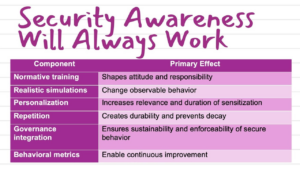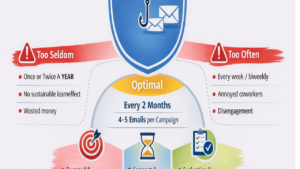1. OSINT Reconnaissance Module (Experimental)
This experimental feature enables automatic open-source intelligence gathering based on specified parameters like name, email address, or other optional data points. The module searches publicly accessible sources (e.g. social media, forums, public registries) to build an educational vulnerability profile. These insights are then used to power ultra-targeted, AI-generated phishing simulations - tailored to the individual’s context, tone, and risk profile.
2. Per-Realm Variables
A new feature that allows you to define global variables at the realm level, which can be used in templates similar to user group variables. The default variables include Company Name, Location, and Address.
1. Campaign Statistics Export Enhancements
In addition to previously available fields, the export now includes new columns - such as language, user-group-variables, and engagement metrics. Anonymization options have also been added to help protect sensitive user data during reporting and analysis.
2. Advanced Campaign Anonymization
We improved the options to protect sensitive user data during campaign, reporting and analysis. You can now configure the anonymization on a field level.
3. AI Phishing Generator Upgrade
We've upgraded the underlying LLM to a newer version and redesigned the prompting logic. This results in more relevant, realistic, and personalized phishing simulations with improved tone and structure.
4. Schedule Sending in Business Hours
The scheduler now supports sending emails only during predefined business hours and selected weekdays. Time zone awareness ensures users in different regions receive messages at appropriate local times.
5. File Manager UI Improvement
File Manager now displays campaign and realm names instead of internal IDs, making navigation and file management much more intuitive - especially when working across multiple campaigns or templates.
6. Dynamic User Variables in Messages
User-specific variables can now be used not only in the email body but also in the email subject, sender name, and sender email fields. This allows for even more targeted, context-sensitive message customization.
7. Template Variable Expansion
A new gender field has been added to user profiles, enabling conditional logic in templates. Salutations can now adapt to the user's gender - male, female, or unknown - for a more natural message flow.
8. OpenLDAP Integration Support
The system now offers comprehensive support for OpenLDAP in addition to the previously available Microsoft Active Directory LDAP(s) integration. This enhancement enables organizations to import users (employees) from OpenLDAP directory services directly into the system, providing greater flexibility in user management.


